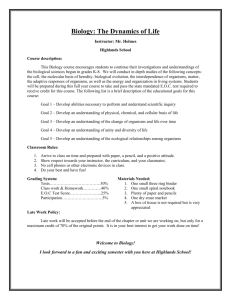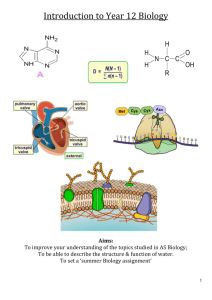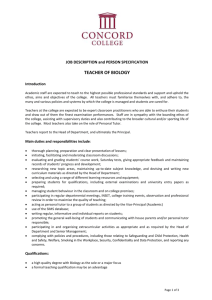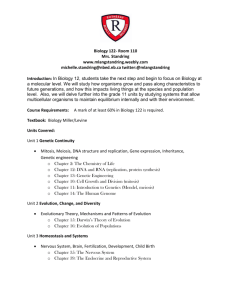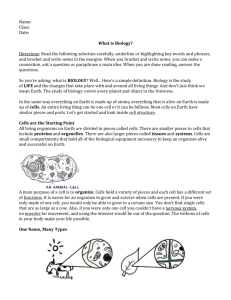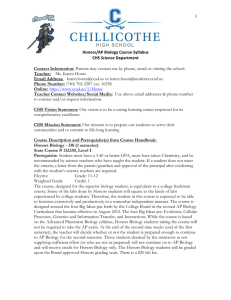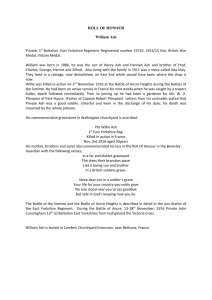Biology - Beverley Grammar School
advertisement
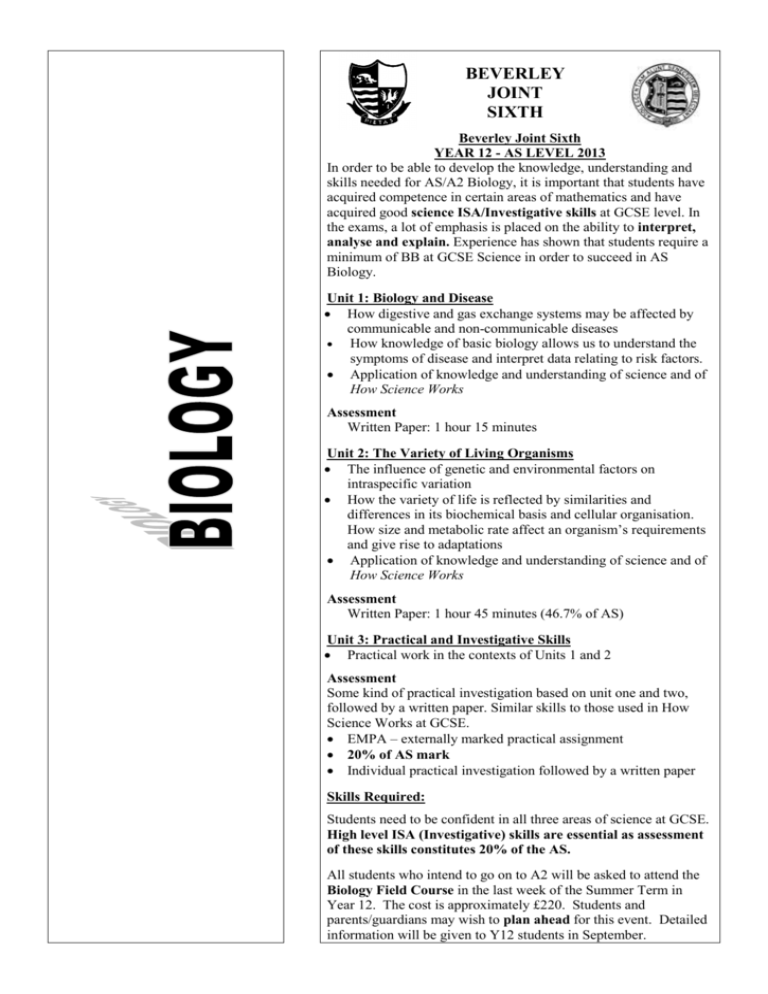
BEVERLEY JOINT SIXTH Beverley Joint Sixth YEAR 12 - AS LEVEL 2013 In order to be able to develop the knowledge, understanding and skills needed for AS/A2 Biology, it is important that students have acquired competence in certain areas of mathematics and have acquired good science ISA/Investigative skills at GCSE level. In the exams, a lot of emphasis is placed on the ability to interpret, analyse and explain. Experience has shown that students require a minimum of BB at GCSE Science in order to succeed in AS Biology. Unit 1: Biology and Disease How digestive and gas exchange systems may be affected by communicable and non-communicable diseases How knowledge of basic biology allows us to understand the symptoms of disease and interpret data relating to risk factors. Application of knowledge and understanding of science and of How Science Works Assessment Written Paper: 1 hour 15 minutes Unit 2: The Variety of Living Organisms The influence of genetic and environmental factors on intraspecific variation How the variety of life is reflected by similarities and differences in its biochemical basis and cellular organisation. How size and metabolic rate affect an organism’s requirements and give rise to adaptations Application of knowledge and understanding of science and of How Science Works Assessment Written Paper: 1 hour 45 minutes (46.7% of AS) Unit 3: Practical and Investigative Skills Practical work in the contexts of Units 1 and 2 Assessment Some kind of practical investigation based on unit one and two, followed by a written paper. Similar skills to those used in How Science Works at GCSE. EMPA – externally marked practical assignment 20% of AS mark Individual practical investigation followed by a written paper Skills Required: Students need to be confident in all three areas of science at GCSE. High level ISA (Investigative) skills are essential as assessment of these skills constitutes 20% of the AS. All students who intend to go on to A2 will be asked to attend the Biology Field Course in the last week of the Summer Term in Year 12. The cost is approximately £220. Students and parents/guardians may wish to plan ahead for this event. Detailed information will be given to Y12 students in September. BEVERLEY JOINT SIXTH Beverley Joint Sixth YEAR 13 - A2 LEVEL 2013 Unit 4: Populations and Environment How living organisms form ecosystems through which energy is transferred and chemical elements cycled How human activity affects ecological balance in a variety of ways How genetic variation and isolation may lead to the formation of new species. Application of knowledge and understanding of science and of How Science Works Assessment Written Paper: - 1 hour 30 minutes (16.7% of A Level) Unit 5: Control in Cells and in Organisms Stimulus and responses – the biology of the nervous and endocrine systems Homeostasis and the maintenance of a constant internal environment Genes and genetic expression Application of knowledge and understanding of science and of How Science Works Assessment Written Paper including an essay: 2 hours 15 minutes (23.3% of A Level) Unit 6: Practical and Investigative Skills Practical work in the contexts of Units 4 and 5 Assessment EMPA – externally marked practical assignment 10% of A2 mark Individual practical investigation, including statistical analysis of results, followed by a written paper Career Opportunities e.g. Research, environmental sciences, microbiology, biotechnology, molecular biology, food science, education, Medical science (including bio-medical science), medicine/dentistry/veterinary studies, physiotherapy, nursing, pharmaceutical industry.



